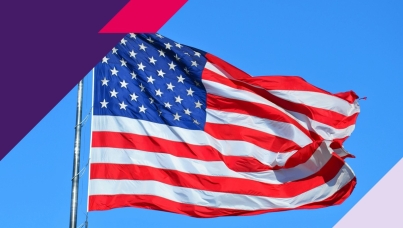DTC Advertising Comes of Age
"Over time, drug companies have developed a better understanding of patients, their attitudes and habits. They've learned to use DTC advertising more wisely and appropriately," said Fariba Zamaniyan, director of Ipsos PharmTrends, a syndicated service that tracks consumer purchase behavior of both prescription and non-prescription drugs.
"Strategies have became more focused and targeted; executions have improved. Media plans have become more powerful and effective."
Awareness levels of DTC ads are considerably higher for latecomers -- brands that launched DTC in 2001 and beyond. Consider the following Ipsos PharmTrends findings:
- DTC awareness levels are higher for brands that launched DTC in 2001 and beyond, compared to the early DTC years.
- For DTC launched before 2001, the average first year ad awareness was 56.0%.
- Comparatively, brands introduced in 2001 and 2002 that used DTC, ad awareness during the first year was 69.9%.
First, the proportion of prescription brand buyers claiming to have asked their doctors for branded prescription drugs because of DTC is higher for the most recently launched brands than for brands launched earlier. Newer brands (such as Clarinex and Nexium) have a higher percentage of requests due to DTC (10.9%, net average of leading DTC Rx's with a DTC launch after 2000) than older brands such as Lipitor and Pravachol (3.9%, net average of leading DTC Rx's with a DTC launch before 2001). The exceptions were Prevacid and Singulair, which had 6.2% and 5.9% respectively of its buyers requesting the drugs because of DTC.
Second, DTC advertising is impacting consumer/patient persistency levels, generating more scripts among self-reported ad aware vs. not ad aware prescription brand buyers. Newer DTC launches, such as Nexium and Advair, have prompted on average one additional script fill in their first year of DTC among those buyers who self-reported they were aware of advertising for that drug in any medium (Television, radio, print, etc).
On the other hand, older products on average experienced about half as much additional script fulfillment among those who were aware of DTC advertising for their respective brands. The exception to this pattern was Singulair; one earlier brand that matched the success of later brands in generating higher consumer persistency levels among DTC influenced patients/consumers.
Before 1997, television DTC with both brand names and indications (the conditions they are designed to treat) was not permitted in the marketing and promotion of prescription drugs. In 1997, U.S. Food and Drug Administration guidelines were changed. Since then, TV DTC promotional campaigns have fewer restrictions, changing how drug manufacturers market their products to consumers. Beginning in 1999, the FDA guidelines mandated coordinated TV, magazine, website and toll free numbers in all campaign executions. FDA interventions such as this ensured better integration of multiple media vehicles and as a result, encouraged development of more effective and consistent campaigns that made information easily accessible to patients and consumers.
In the early days, DTC advertising reflected a lack of drug company and ad agency experience in this area, Zamaniyan noted.
Table 1: Branded prescription drug buyers who were influenced by DTC and incremental scripts filled among ad aware vs. not ad aware buyers
View Larger Version Ipsos PharmTrends Methodology
Each month, PharmTrends syndicated tracking service captures both prescription fulfillment and over-the-counter purchasing data through a longitudinal and continuous consumer panel of 16,000 households that is representative of the U.S. census composition. Each month, panelists report their prescription and over-the-counter purchases for the treatment of a full spectrum of conditions (general and specific). The monthly tracking began in 1997. To learn more about PharmTrends please visit our Homepage.
- For more information, please contact:
Fariba Zamaniyan
Director
Ipsos PharmTrends
(516) 507-3047



